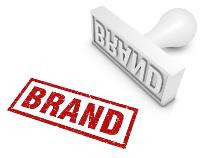 "The goal of personal branding is to be recruited based on your brand, not applying for jobs." - Dan Schawbel, personal branding expert for gen-y
"The goal of personal branding is to be recruited based on your brand, not applying for jobs." - Dan Schawbel, personal branding expert for gen-y
Using the list of skills you have identified in this chapter, you can put them to work by developing what is called a 'personal brand." You are not just a job seeker or a face in the crowd. Management consultant Tom Peters first suggested the concept in a 1997 article in Fast Company magazine, and ever since then a cottage industry of consultants has popped up to help job seekers personal brand, along with a host of books and magazine articles devoted to the topic.
Your skills make up a multi-faceted business that provides an essential service to your clients (employers). When a new brand is launched, the company thinks about what makes its product unique. Next, it creates a campaign to convince people that your brand is the best to fill a position.
Savvy job seekers will think of themselves in a similar way. What makes me unique? How can I convince employers I am the best candidate for this job? Personal branding is valuable to a job search because it helps you define who you are. Simply, it is the process by which individuals identify and communicate their unique skills to others.
Dan Schawbel, author of "Me 2.0: Build a Powerful Brand to Achieve Career Success," suggests a four-step process for personal branding: discover, create, communicate, maintain.
Discover starts with determining what you want in a job or career.
Create and communicate focus on resumes, LinkedIn, online profiles, blogs, Twitter and Facebook, all potential portfolio material for your "brand tool kit." Maintain deals with monitoring how your brand is noted, an easy thing to do with Google Alert and other Web-based tracking sites. You'll want to know what others are saying about you, and if it's wrong you can quickly correct those impressions.
A few other points about personal branding: You have to be consistent. You have to contribute to various online media to keep your name and brand fresh, whether it is through a personal blog or a Facebook contribution.
You have to get out of the house. While a lot of personal branding occurs online, the majority happens in real time. You have to attend networking functions, conferences and informational interviews. Press the flesh and hand out plenty of business cards with your website, blog and phone number. If you wish, list the social networking sites you use so that contacts can "friend" you or become your follower on Twitter.
In addition, if you develop a personal brand you must also accept the responsibility to keep it up. While personal branding is helpful during your job search, it needs to continue evolving even after you have won a new job. Make sure your "tools" are always honest and updated. Your personal brand will evolve as you gain new skills. But take care not to spend company time nurturing your personal brand on the job, which can be grounds for your boss showing you the door.
As personal branding has risen to prominence it seems many practitioners are Web-savvy self-promoters in media, marketing and technology. A word to the wise: Are others in your field personal branding? If you're looking for a job, do employers appreciate your ability to blog, to maintain a cool website, to stay abreast of social media?
If not, and if you're not going into self-employed consulting, it may be better to focus your efforts on other activities.
